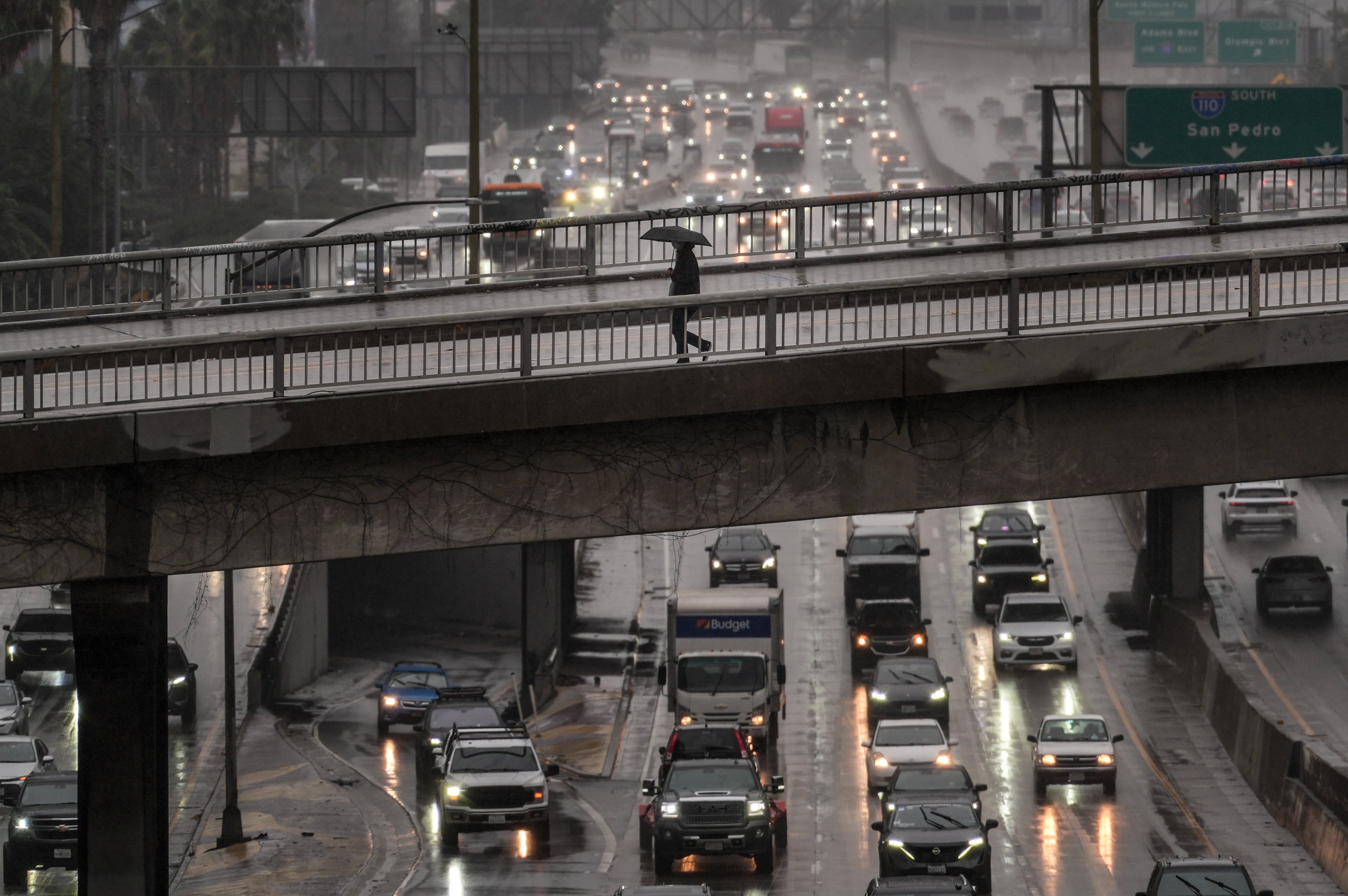Belgian farmer sues French energy giant for damage caused by climate change

TOURNAI, Belgium (AP) — A Belgian farmer is facing off against oil giant TotalEnergies in court on Wednesday, arguing the French company should pay for damage caused by climate change, in the latest lawsuit by environmental activists against big energy companies.
Ahead of the hearing, Hugues Falys told a crowd of some 50 supporters, who had turned up in the cold rain, that he brought his claim “to force TotalEnergies to change its practices” and make its operations less harmful “for society in general and agriculture in particular.”
The lawsuit, backed by environmental organization Greenpeace, seeks financial compensation and demands TotalEnergies reduce its oil and gas production to slow the greenhouse gas emissions that warm the planet.
The company did not reply to a request for comment but in other litigation has said it has already cut emissions and is investing in greener energy sources.
Worldwide, environmental groups and individual citizens have brought nearly 100 cases against major oil producers including BP, Exxon Mobil and Shell in the last two decades. A 2023 report by the United Nations Environment Program found that the number of lawsuits had doubled in the previous five years.
None have, so far, resulted in any company being forced to pay for damages directly related to climate change.
“We think it’s time that the impunity of big polluters like TotalEnergies, that still exists today, ends and it has to end in court,” Joeri Thijs of Greenpeace Belgium told reporters ahead of Wednesday’s hearing.
The proceedings are expected to last until mid-December.
Taking oil companies to court
In 2021, a court in Belgium’s northern neighbor the Netherlands ordered Shell to cut its carbon emissions in a landmark case brought by climate activist groups. That decision was later overturned on appeal and is now pending before the Supreme Court.
Earlier this year, a German court ruled against a Peruvian farmer who argued global warming increased his risk of catastrophic flooding and wanted German energy giant RWE to pay up.
According to the Climate Litigation Database maintained by Columbia University’s law school, most of the lawsuits are brought in the United States.
In January, the U.S. Supreme Court declined to hear an appeal from oil and gas companies trying to block such lawsuits, allowing a case brought by the city of Honolulu against Sunoco, Shell, Chevron, Exxon Mobil and BP to move forward. A similar case is pending in Colorado.
Government obligations
Activists have had more success with cases against their own governments than against companies. The Dutch Supreme Court held in 2019 that protection from the potentially devastating effects of climate change was a human right and that the government has a duty to protect its citizens. A Paris court ruled similarly in 2021, but an appeal is still pending.
Last year, Montana’s Supreme Court upheld a landmark climate ruling that said the state was violating residents’ constitutional right to a clean environment by permitting oil, gas and coal projects without regard for global warming.
International cases
Activists have also looked beyond domestic courts to fight global warming.
In July, the United Nations’ top court handed down an advisory opinion that countries could be in violation of international law if they fail to take measures to protect the planet from climate change, and nations harmed by its effects could be entitled to reparations.
Last year, Europe’s highest human rights court ruled that countries must better protect their people from the consequences of climate change, siding with a group of older Swiss women against their government in a groundbreaking ruling that could have implications across the continent.
The effects of those cases have yet to be fully seen but experts say the decisions pave the way for other legal actions, including domestic lawsuits.
